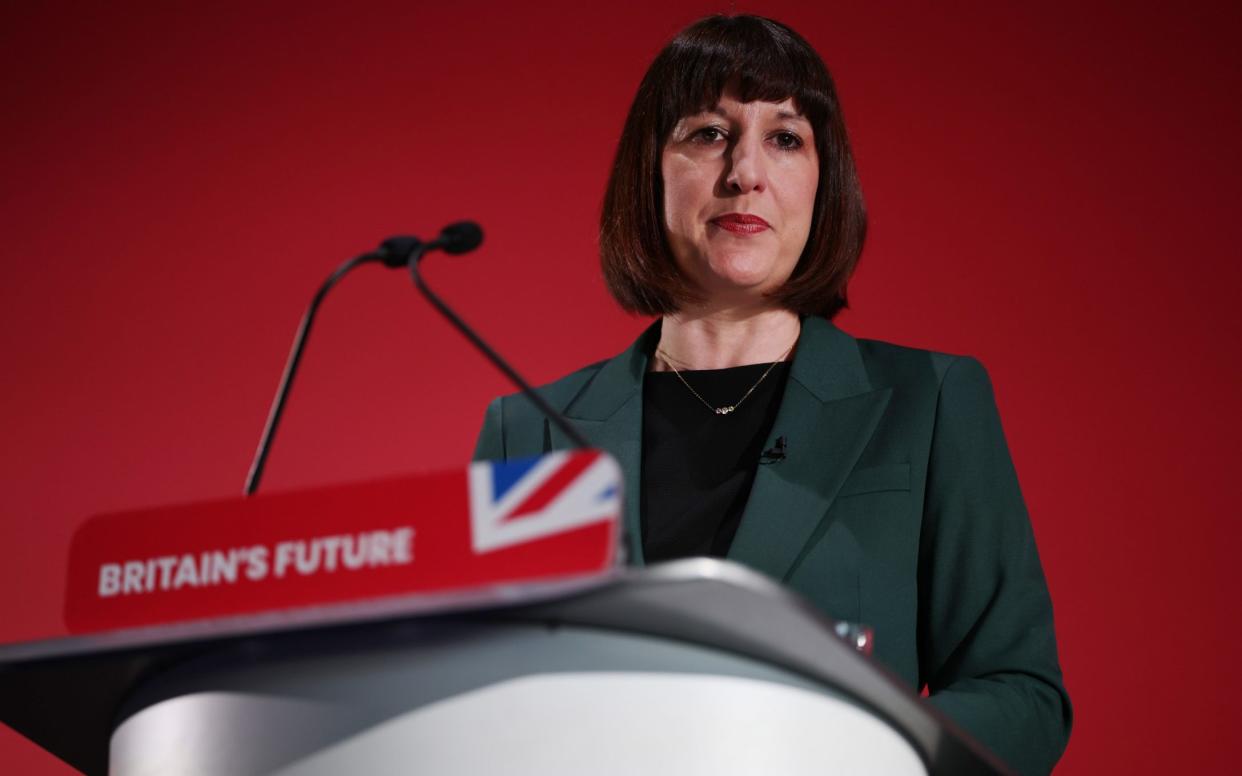Rachel Reeves won’t promise income tax cuts

- Oops!Something went wrong.Please try again later.
Rachel Reeves has failed to commit to income tax cuts despite criticising the Tories for taking the tax burden to its highest level for 70 years.
The shadow chancellor said she wanted to lower taxes for working people but said it would be “damaging” to do so without knowing how they would be paid for.
Speaking at a conference for business leaders, she pledged to cap corporation tax at 25 per cent for five years, if Labour was to win the next election.
It came a day after she revealed she would not be reinstating the cap on bankers’ bonuses, saying it was now no longer needed because of greater regulation.
She told conference attendees: “This Labour Party sees profit not as something to be disdained but as a mark of business succeeding.
“Be in no doubt. We will campaign as a pro-business party – and we will govern as a pro-business party.”
Labour has long criticised the Conservatives for freezing the thresholds at which people pay various bands of income tax and national insurance.
Dragged into higher bands
Inflation means that every year, more and more people are dragged into higher bands – a phenomenon known as fiscal drag.
The party even published an online tax calculator allowing people to find out how much they were losing by this stealth tax.
Jeremy Hunt, the Chancellor, has said income tax thresholds will remain frozen until 2028.
Asked at the conference, at the Oval in London, whether she would lift income tax thresholds, Ms Reeves said: “I have made no secret of the fact that I think taxes on working people are too high but I won’t make any commitments that are not fully costed and fully funded.
“And so while I would like taxes on working people to be lower, the most damaging thing you could do is promise tax cuts that end up crashing financial markets and sending mortgage rates soaring, which is what the Conservatives have done. I will never make that mistake.”
However, she did announce that a Labour government would cap corporation tax at its current rate of 25 per cent for the duration of the next parliament.

The shadow chancellor said: “Our current [corporation tax] rate is the lowest in the G7 and we believe that a 25 per cent rate strikes the correct balance between the needs of our public finances, and the demands of a competitive global economy.
“The next Labour government will make the pro-business choice and the pro-growth choice: we will cap the headline rate of corporation tax at its current rate of 25 per cent for the next parliament. And should our competitiveness come under threat, if necessary we will act.”
Her comments mean Labour would consider cutting corporation tax if it was needed to boost the UK’s competitive edge.
As chancellor, Rishi Sunak announced a rise in corporation tax from 19 per cent to the current 25 per cent rate for companies with profits over £250,000.
Ms Reeves told businesses that Labour would prize stability for businesses, as she said: “If we expect businesses to invest in Britain, tax rates cannot shoot up and down like a yo-yo according to each political whim.”
Asked about her about-turn on the bankers’ bonus cap, she said: “When the Government scrapped the bank bonus cap, we didn’t feel that that was the right priority in that Budget.
“But what I hear loud and clear from business, that what it will take to get them to invest in Britain is stability and the last thing we need is more chopping and changing.
“And the truth is in financial services there are a lot more rules and regulations and safeguards in place than there were before the financial crisis.”
‘Consistent with fiscal rules’
Asked if she was preparing to drop the pledge to spend £28 billion a year on green technology and jobs, the shadow chancellor would not be drawn but said it was “absolutely essential that all of our policies are consistent with our fiscal rules”.
She said there will be “at least one more fiscal statement” before the next general election and Labour’s fiscal rules will “always take precedence”.
The conference, organised by Labour, was attended by 400 business leaders.
Mr Hunt has warned that tax cuts at next month’s budget may not be as large as last November, when national insurance was cut by 2p. It is understood he is looking at cuts to income tax or inheritance tax.

